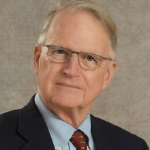environmental and genetic factors and their interactions, as well as bioinformatics analyses of electronic health records (EHRs) for clinical and translational research.
She has funding from the National Institutes of Health (NIH) for translational epidemiology, EHR and bioinformatics research, as well as mid-career mentoring. And she has served as primary mentor for 24 junior faculty, post-doctoral research fellows and rheumatology trainees.
Dr. Karlson is a past recipient of the Henry Kunkel Young Investigator Award from the ACR and the Senior Faculty Mentoring Award from Brigham and Women’s Hospital. She has served on the ACR Committee on Research and organized multiple Clinical Research Conferences at ACR/ARHP Annual Meetings.
Q: What is the most fulfilling part of your job?
A: Seeing my mentees develop the skills to embark on independent careers is the most fulfilling part of my job.
Q: What advice do you have for the next generation of rheumatologists?
A: I would advise the next generation of rheumatic disease investigators to work on prevention of autoimmune diseases. I would encourage more early investigators to obtain education in statistics and bioinformatics to gain the skills needed to analyze “Big Data.”
Q: What has the ACR meant to you?
A: The ACR has provided the best venue for exchange of scientific ideas at the Annual Meetings, especially in the concurrent abstract sessions, where investigators present their latest findings and receive important feedback on their work.
Q: If you could change one thing about the field of rheumatology, what would it be?
A: I think we should inspire more medical residents to pursue rheumatology training and, especially, clinical research training.
ACR Distinguished Basic Investigator
 Robert Winchester, MD
Robert Winchester, MD
Professor of Medicine, and Pathology, Columbia University, College of Physicians and Surgeons, New York
Background: Dr. Winchester’s pioneering work in the early identification and tissue expression of human MHC class II molecules helped link MHC genotype and susceptibility to autoimmunity.
Looking back, he says the technology of those years seems almost “primitive. … It took one fellow a year for what now literally can be done in a moment. The depth of research has advanced enormously with the new technologies.”
Dr. Winchester earned his medical degree from Cornell University Medical College in 1963 and completed medical internship and a few weeks of residency at The New York Hospital before unexpectedly becoming a captain in the U.S. Army Medical Corps. His research on autoimmune disease began at Rockefeller University in Henry Kunkel’s lab just after military service. His current areas of interest include the role of HLA alleles in influencing susceptibility to, and the phenotype of, autoimmune diseases and the way T cells mediate them.



